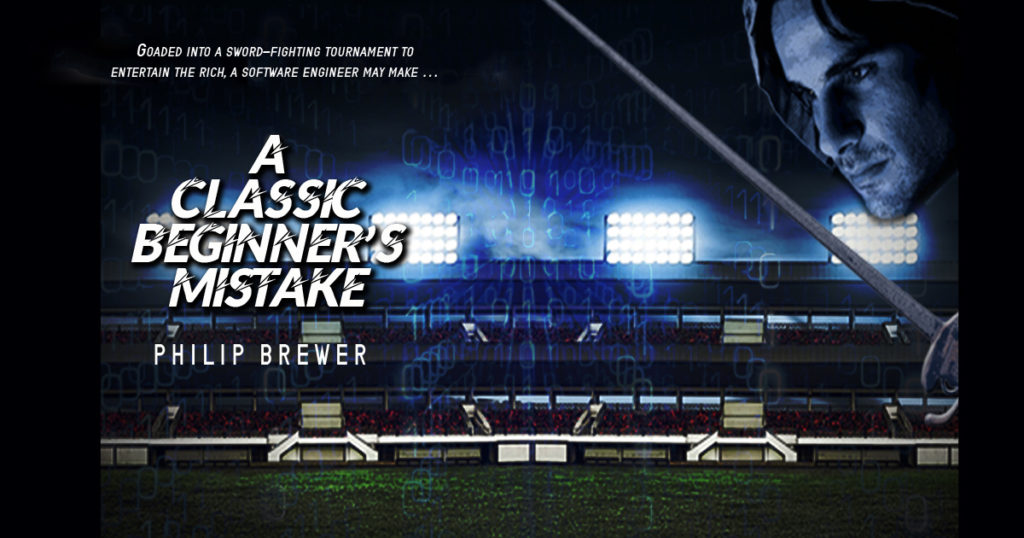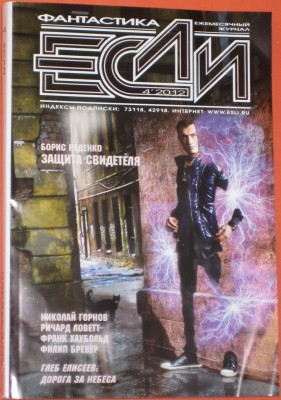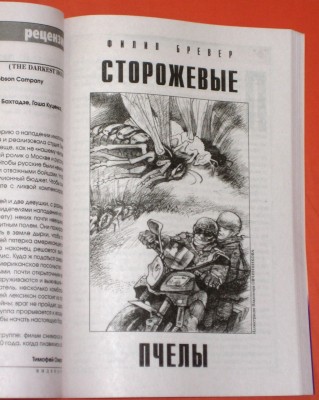Check it out! I have cover art for my new story! 😍
Due out February 2023 from Water Dragon Publishing!


Check it out! I have cover art for my new story! 😍
Due out February 2023 from Water Dragon Publishing!

My latest Wise Bread post just showed up at Business Insider, with yet another new title: This One Key Rule Could Streamline Your Whole Life. (Wise Bread called it The Simplest Way to Live Simply and Cheaply. My original title had been Simple Living, Simplified.)
I was pleased with this one, so I’m glad to see it get some traction.
I don’t really think of myself as a poet—the menu on my site, which includes categories for my fiction and my nonfiction, doesn’t even have a category for poetry. However, for many years now, I’ve been writing haiku in Esperanto.
It started specifically because of Esperanto. As a beginner with the language, I wanted something tractable. A haiku was small enough that, even if I had to look up every other word, I could put it together and keep it in my head long enough to compose and finish something.
It was also a shared activity with my brother, who was learning Esperanto as well, and similarly found haiku to be appropriately sized. Our haiku were often rather silly observations on the quotidian details of workaday life, and even more often shared jokes—puns based on elaborated misunderstandings of one another’s haiku, and the like.
A few years ago, Steve started taking his haiku more seriously. He read about the Japanese tradition of haiku. He started focusing on writing better haiku. He wrote a lot, and he shared them with other people who cared about haiku. He didn’t quit writing funny, trivial haiku, but he wrote more serious haiku. Haiku that tried to capture something universal through a keenly observed moment. Haiku that used the tools of the Japanese tradition to express something.
I found myself rather left behind. He encouraged me to make a similar study—he even lent me some books—but I didn’t find myself moved to deepen my understanding of haiku.
A few things happened since then. One was simply being more and more impressed with Steve’s haiku—feeling ever more keenly how left behind I was. Another was the publication, by a Japanese Esperantist we met on-line, of a book Kiel verki hajkojn en Esperanto (How to write haiku in Esperanto), which condensed a lot of the stuff Steve had been talking about and applied it specifically to Esperanto. Most recently, a local haiku poet (who also happens to be past president of the Haiku Society of America, former editor of Modern Haiku magazine, and current editor of the Modern Haiku Press) started a haiku study group that meets at the Champaign Public Library.
Participating in the study group, I took one of those little leaps that anyone who works in a creative endeavor takes from time to time. My haiku are perceptibly better.
And so I now have a published haiku. The same Lee Gurga who leads the study group also edits a weekly haiku feature in the News-Gazette, the local paper. He selected one of my haiku for today’s column. He elided the Esperanto original, so I thought I’d share that here:
Glataj folioj.
Senresta en mallumo…
kota genuo
Oh, and I should mention, this isn’t my first ever published haiku. One of my haiku was used as an example in Kiel verki hajkojn en Esperanto. Oh, and I’ve three times traded my haiku for earrings at the Haiku Earring Parties at WisCon.
Mike Tierney of the Navigating Your Money podcast interviewed me last week and has already put the show up. Listen to me natter on about frugal living here:
Episode #19: Live Like You Have More, On Less
I haven’t actually listened to it. I find the idea of doing so fills me with dread. (I’ve heard other people say similar things, but am a little surprised to find myself so strongly affected.)
Wise Bread’s Will Chen has assured me that I sound reasonably articulate:
I especially like the part where you explained that a budget is not a limit but rather a tool for showing you what you CAN have. The part about sharing tools is also a really awesome part. You did great, but the host is also really good. He clearly has read through your material and gets your philosophy.
So there you have it. If you’re interested in what I’ve been saying, but you want to hear it in my voice rather than reading it on the screen, here’s your chance.
My Wise Bread post Have Style, not a Lifestyle picked up a mention on the blog Soldierette as one of 5 Unmissable Personal Style Tips.
I spent a few minutes poking around the site. There’s a lot to like there. The fitness stuff in particular caught my eye. (I’m always trying to balance staying motivated enough to get my exercise with avoiding injuring myself by training too much or too hard. I find fitness-related writing helps with both aspects of that.)
My story “Like a Hawk in its Gyre” has gone up on Escape Pod, read aloud by Tim Crist.
Here’s a link: EP358: Like a Hawk in its Gyre
The story originally appeared in Redstone Science Fiction, February 2011 (issue #9), edited by Michael Ray.
It sounds great! I’m delighted!
Got word from Mur Lafferty that Escape Pod will buy audio reprint rights to my story “Like a Hawk in its Gyre”!
The story previously appeared in the February 2011 issue of Redstone Science Fiction.
This will be my first audio publication. I’m very much looking forward to hearing a reader’s interpretation of my writing.
I’m going to be interviewed on Rudy Maxa’s World (America’s #1 Travel Radio Show) tomorrow (Saturday, May 19th). I’ll be on at 11:43 Eastern time for five minutes.
If you want to hear me talk, you can:
They want me to talk about my Why I Hate Points Wise Bread post.
I’ve been interviewed before, but usually either by a reporter who’s gathering info for a story, or else by email where I can compose my replies. This’ll be my first live interview.

 In the post yesterday I found my contributors copy of the Russian magazine Esli (If) with the Russian translation of “Watch Bees”!
In the post yesterday I found my contributors copy of the Russian magazine Esli (If) with the Russian translation of “Watch Bees”!
I’d been keeping an eye on their website, expecting that they’d update it with the new issue before I got my copy by international mail, but the paper copy arrived first.
Very interesting to see my name transliterated into Cyrillic characters.
I happened to know that the character that looks like P is pronounced as R, so I was tentatively able to spot “Brewer” in the table of contents by the placement of the Ps. I still wasn’t sure, of course, but my feeling was somewhat strengthened by the initial character of my first name looking like a Greek Phi.
The table of contents directed me to page 111, and flipping ahead to there I was able to confirm my story by the interior illustration:
 What a great picture! It captures a key scene in the story while avoiding any spoilers.
What a great picture! It captures a key scene in the story while avoiding any spoilers.
I haven’t very often gotten an illustration for one of my stories, so I’m especially pleased.
I’ll try to figure out the artist’s name and see if he or she has a website I can link to. (The name is there on the picture, but in Cyrillic characters. And it’s a long name. I guess my next step is to spend half an hour hunting for each character on a Unicode character table.)
My mother-in-law, who speaks some Russian, has been asking after this issue. She’ll be very excited to learn that it has arrived.
I’ve got a guest post up at Asta Lander’s blog Simply Living, about the trade-offs that people make when they choose to work for wages or a salary, and how you can get most of the benefits while avoiding most of the downside.
It’s called Choosing Freedom.
There was a time when most people were self-sufficient. They acquired what they needed through some mix of hunting, gathering, fishing, farming, raising animals, and making things themselves. Not many people do that any more.